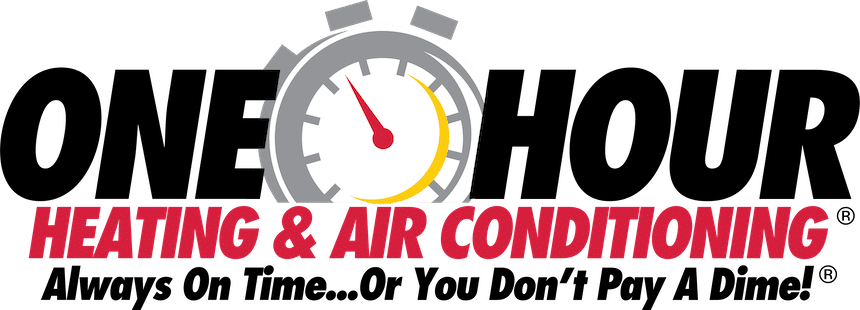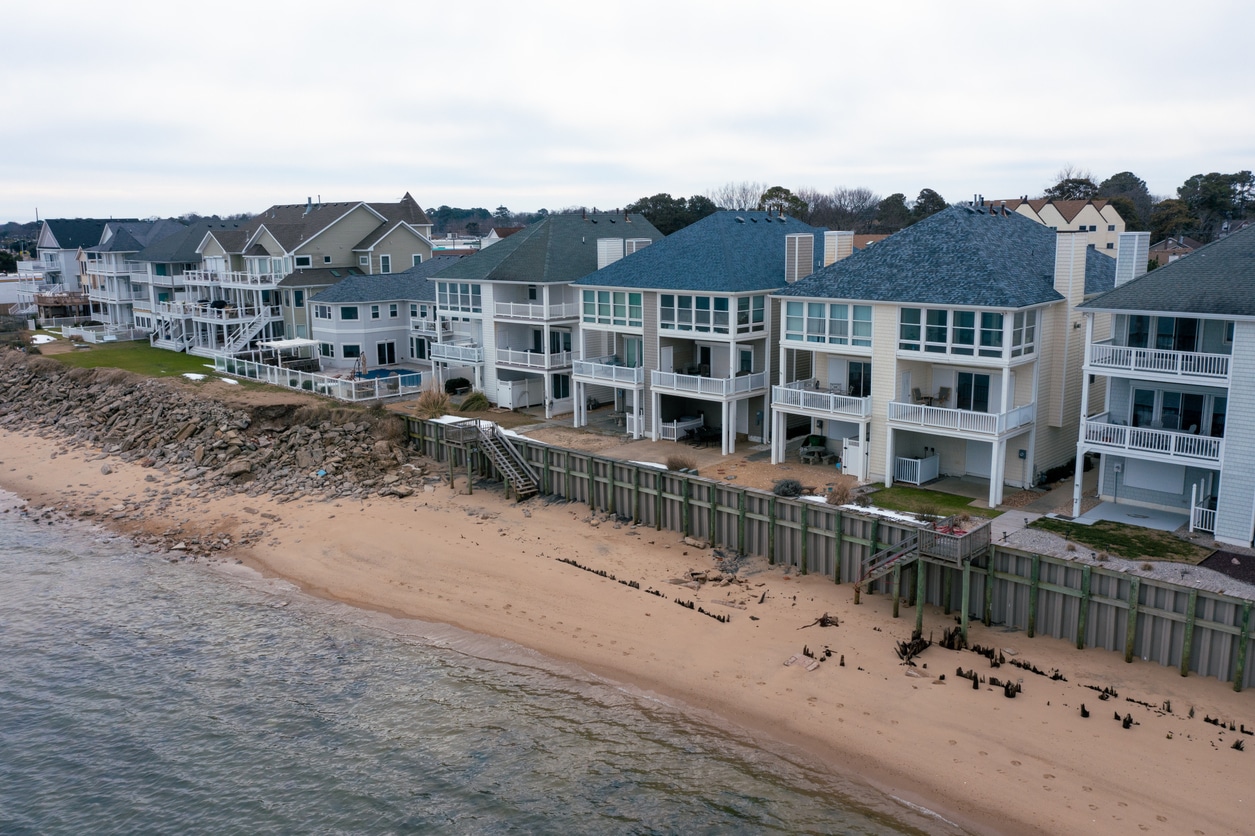- Regular Inspections: Schedule bi-annual professional maintenance to check for corrosion, clogged filters, and electrical issues caused by salty air and high humidity.
- Cleaning: Regularly clean or replace filters, coils, and fins to maintain efficiency and prevent buildup.
- Corrosion Prevention: Apply protective coatings, use corrosion-resistant materials, and install sacrificial anodes to safeguard against rust.
- Energy Efficiency: Improve insulation, use programmable thermostats, and integrate dehumidifiers to reduce energy consumption.
- Air Quality: Utilize air purifiers and dehumidifiers to maintain healthy indoor air in humid, coastal environments.
Living by the ocean offers breathtaking views and a serene lifestyle, but it comes with its own set of challenges, particularly when it comes to maintaining your HVAC system. Oceanfront properties are exposed to salty air, high humidity, and extreme weather conditions that can take a toll on HVAC systems. Regular HVAC maintenance is not just recommended; it’s essential for ensuring the longevity and efficiency of your system.
Maintaining your HVAC system is critical for both comfort and cost-efficiency. Neglecting HVAC maintenance can lead to frequent breakdowns, higher energy bills, and the need for costly repairs or replacements. By understanding the unique challenges posed by coastal environments and implementing regular HVAC maintenance practices, homeowners can protect their investment and ensure a comfortable living environment year-round.
Understanding the Impact of Coastal Environments
How does coastal living affect your HVAC system?
Living near the ocean brings a unique set of challenges to maintaining your HVAC system. The salty air and high humidity prevalent in coastal environments can significantly impact the performance and longevity of your HVAC system. Salt particles in the air can corrode metal components, leading to rust and deterioration over time. This corrosion can affect everything from the outdoor unit to the internal parts, causing reduced efficiency and frequent breakdowns.
Common issues faced by HVAC systems near the ocean:
- Corrosion and Rust: Salt accelerates the corrosion process, especially on the condenser coils and other metal parts. This can lead to leaks and mechanical failures.
- Clogged Filters: The increased moisture and airborne salt can quickly clog filters, reducing airflow and forcing the system to work harder.
- Electrical Problems: High humidity levels can lead to electrical issues, including short circuits and component failures.
- Reduced Efficiency: Corrosion and clogging can reduce the system’s efficiency, leading to higher energy bills and decreased cooling or heating effectiveness.
Understanding these impacts is the first step in protecting your HVAC system from the harsh coastal environment. Regular inspections and preventive measures can help mitigate these issues, ensuring your system runs smoothly and efficiently.
Regular Inspection and Cleaning
Why are regular inspections crucial for your HVAC system?
Regular inspections are vital for maintaining the health of your HVAC system, especially in oceanfront properties. Given the harsh coastal environment, frequent check-ups can help identify potential issues before they become significant problems. Early detection of wear and tear, corrosion, or other damage can save homeowners from costly repairs and extend the lifespan of the system.
Cleaning components: filters, coils, and fins
- Filters: Clean or replace filters every 1-3 months. Dirty filters restrict airflow, making your system work harder and less efficiently. In coastal areas, filters can become clogged more quickly due to salt and moisture.
- Coils: Both the evaporator and condenser coils should be cleaned regularly. Dirt and salt accumulation on the coils reduce their ability to absorb and release heat, straining the system.
- Fins: The aluminum fins on the evaporator and condenser coils can bend and block airflow. Gently clean and straighten the fins using a fin comb.
Tools and products for effective cleaning
- Vacuum Cleaner: Useful for removing dirt and debris from around the unit.
- Fin Comb: Helps straighten bent fins and improve airflow.
- Coil Cleaner: A specially formulated cleaner to remove grime and salt from the coils without damaging them.
- Soft Brush: For gentle cleaning of delicate components.
By maintaining a regular inspection and cleaning routine, homeowners can keep their HVAC systems running efficiently, even in the challenging coastal climate. Clean components ensure optimal performance, reduce energy consumption, and prolong the system’s life.
Protecting Your HVAC System
How can you protect your HVAC system from coastal damage?
Oceanfront properties require extra precautions to shield HVAC systems from the elements. Salt, humidity, and strong winds can all cause significant damage. Implementing protective measures can prevent corrosion and mechanical issues, ensuring your HVAC system remains efficient and durable.
Using protective coatings and sealants
Applying protective coatings and sealants to your HVAC system’s metal components can significantly reduce the risk of corrosion. These coatings act as a barrier against salt and moisture, prolonging the life of the unit. Regular reapplication is recommended, especially in areas directly exposed to the salty air.
Installing HVAC covers
Protective covers are essential for safeguarding your HVAC system. There are several benefits to using outdoor unit covers:
- Shield from Elements: Covers protect the unit from rain, salt, and debris.
- Prevent Corrosion: By minimizing exposure to salt and moisture, covers help prevent corrosion.
- Maintain Efficiency: Keeping the unit clean and dry ensures it operates efficiently.
When choosing a cover, ensure it fits well and is made from durable, weather-resistant materials. Covers should be used whenever the unit is not in operation, particularly during off-seasons or severe weather conditions.
Benefits of outdoor unit covers
- Prolonged Lifespan: Reducing exposure to the elements extends the life of your HVAC system.
- Reduced HVAC Maintenance: Less dirt and debris accumulation means fewer cleanings and lower maintenance costs.
- Improved Performance: A well-protected unit runs more efficiently, leading to lower energy bills.
Taking these steps to protect your HVAC system can save homeowners in oceanfront properties significant time and money. With the right preventive measures, your system can withstand the coastal environment and continue to provide reliable comfort.
Seasonal HVAC Maintenance Checklist
How can you prepare your HVAC system for seasonal changes?
Seasonal HVAC maintenance is crucial for keeping your HVAC system running efficiently throughout the year. Preparing your system for the demands of each season can prevent breakdowns and ensure optimal performance. Here’s a comprehensive checklist to help you get started.
Preparing your HVAC system for summer
- Clean or Replace Filters: Ensure your filters are clean to allow for maximum airflow and efficiency.
- Inspect Refrigerant Levels: Check and adjust refrigerant levels if necessary. Low levels can reduce cooling efficiency.
- Clean Coils and Fins: Remove any dirt or debris from the coils and fins to improve heat exchange.
- Check Thermostat Settings: Set your thermostat to a comfortable temperature and consider using a programmable thermostat for better energy management.
- Inspect Ductwork: Ensure ducts are sealed and insulated to prevent cool air from escaping.
Winterizing your HVAC system
- Inspect and Clean the Furnace: Clean or replace the furnace filter, and inspect the heat exchanger for cracks or damage.
- Check Thermostat Settings: Adjust the thermostat to a comfortable setting for winter. Consider setting a lower temperature at night to save energy.
- Seal Air Leaks: Check for and seal any air leaks around windows and doors to keep warm air inside.
- Test Carbon Monoxide Detectors: Ensure your carbon monoxide detectors are working correctly, especially if you have a gas furnace.
- Cover Outdoor Units: Use protective covers for outdoor units to shield them from snow and ice.
Monthly, quarterly, and yearly tasks
Monthly Tasks:
- Check and Replace Filters: Regularly check and replace air filters to maintain airflow and efficiency.
- Inspect Vents and Registers: Ensure all vents and registers are clean and unobstructed.
Quarterly Tasks:
- Check Thermostat Batteries: Replace the batteries in your thermostat if needed.
- Inspect Outdoor Unit: Remove any debris and ensure the area around the outdoor unit is clear.
Yearly Tasks:
- Schedule Professional HVAC Maintenance: Have a professional inspect and service your HVAC system twice a year.
- Clean Ductwork: Consider having your ductwork professionally cleaned to remove dust and debris.
Energy Efficiency Tips
How can you enhance HVAC efficiency in coastal climates?
Improving energy efficiency in your HVAC system not only lowers your utility bills but also helps reduce your carbon footprint. Coastal climates present unique challenges, but with the right strategies, you can optimize your HVAC system’s performance.
Insulation and weatherproofing tips
- Seal Gaps and Cracks: Check for and seal any gaps or cracks around windows, doors, and walls. This prevents air leaks and maintains consistent indoor temperatures.
- Upgrade Insulation: Ensure your home is well-insulated, particularly in the attic and walls. Good insulation keeps cool air inside during summer and warm air in during winter.
- Install Weatherstripping: Add weatherstripping around doors and windows to enhance insulation and reduce drafts.
Programmable thermostats and smart home integration
- Programmable Thermostats: Install a programmable thermostat to set your HVAC system to operate only when needed. This can save energy by reducing unnecessary heating or cooling.
- Smart Thermostats: Upgrade to a smart thermostat for advanced features like remote control via smartphone, learning your schedule, and adjusting temperatures automatically.
- Smart Home Integration: Integrate your HVAC system with smart home devices like sensors and voice assistants. This allows for better control and energy management, making it easier to maintain optimal temperatures efficiently.
Additional energy-saving tips
- Use Ceiling Fans: Ceiling fans can help distribute air more evenly, allowing you to set your thermostat a few degrees higher in summer or lower in winter.
- Regular HVAC Maintenance: Keep your HVAC system well-maintained with regular inspections, cleaning, and timely repairs to ensure it operates at peak efficiency.
- Close Curtains and Blinds: During hot days, close curtains and blinds to block out direct sunlight and reduce the cooling load on your HVAC system.
- Use Energy-Efficient Windows: Consider upgrading to energy-efficient windows that provide better insulation and reduce heat transfer.
By implementing these energy efficiency tips, homeowners in coastal areas can significantly reduce their energy consumption and keep their homes comfortable year-round. Small changes can lead to big savings and a more environmentally friendly home.
Common HVAC Problems and Solutions
What are the signs of HVAC issues?
Identifying problems early can save you from costly repairs and system downtime. Here are some common signs of HVAC issues:
- Unusual Noises: Banging, clanking, or buzzing noises often indicate a problem with the system’s components.
- Poor Airflow: Weak or uneven airflow from vents can signal blockages or a failing compressor.
- Frequent Cycles: Rapid cycling or running for extended periods may mean the system is struggling to maintain temperature.
- Bad Odors: Musty or burning smells can point to mold in the ducts or an electrical issue.
- Increased Energy Bills: A sudden spike in energy costs can indicate your system is working harder than necessary due to inefficiency or malfunction.
Troubleshooting common problems
- Check the Thermostat: Ensure it’s set correctly and functioning. Replace batteries if needed.
- Inspect Air Filters: Dirty filters can restrict airflow. Clean or replace them regularly.
- Clear the Area Around the Outdoor Unit: Remove debris and ensure at least two feet of clearance around the unit.
- Check Circuit Breakers: If the system won’t turn on, check if the circuit breaker has tripped and reset it if necessary.
- Examine Ductwork: Look for visible signs of damage or disconnections and seal any leaks.
When to call a professional
While some issues can be resolved with basic troubleshooting, others require professional attention. Call a professional if:
- Refrigerant Leaks: Only licensed technicians can handle refrigerants and repair leaks.
- Electrical Problems: Handling electrical components can be dangerous and should be left to professionals.
- Persistent Issues: If the problem persists despite troubleshooting, a professional inspection is necessary.
- Annual HVAC Maintenance: Schedule bi-annual HVAC maintenance to keep your system running efficiently and catch potential problems early.
Understanding and addressing common HVAC problems can ensure your system operates smoothly, providing consistent comfort throughout your home. Prompt attention to issues helps avoid more severe damage and expensive repairs.
The Importance of Air Quality
How does HVAC maintenance impact indoor air quality in oceanfront homes?
Maintaining good indoor air quality is crucial, especially in oceanfront homes where humidity and salt can contribute to air pollution. Regular HVAC maintenance plays a significant role in ensuring the air you breathe is clean and healthy.
Maintaining indoor air quality in oceanfront homes
Oceanfront properties face unique air quality challenges due to high humidity and salt in the air. These factors can lead to mold growth, increased dust, and other allergens, making it essential to maintain your HVAC system properly. Here are some tips:
- Regular Filter Changes: Change or clean filters every 1-3 months to remove dust, allergens, and pollutants.
- Dehumidifiers: Use dehumidifiers to control indoor humidity levels, preventing mold and mildew growth.
- Ventilation: Ensure your home is well-ventilated to reduce indoor pollutants. Consider installing exhaust fans in kitchens and bathrooms.
Air purifiers and dehumidifiers
- Air Purifiers: These devices can remove airborne particles, including dust, pollen, and smoke. Look for HEPA filters, which are highly effective at trapping small particles.
- Dehumidifiers: Essential for coastal homes, dehumidifiers reduce humidity levels, making it harder for mold and dust mites to thrive. They also help your HVAC system run more efficiently by reducing the moisture it has to remove.
Impact of HVAC maintenance on air quality
Regular HVAC maintenance directly impacts indoor air quality by:
- Removing Contaminants: Cleaning coils, ducts, and other components prevents the buildup of dust, mold, and bacteria.
- Improving Airflow: Well-maintained systems ensure better airflow, reducing the concentration of indoor pollutants.
- Reducing Allergens: Clean filters and components trap allergens more effectively, providing relief for allergy sufferers.
By focusing on indoor air quality, homeowners can create a healthier living environment, reducing the risk of respiratory issues and enhancing overall comfort. Regular HVAC maintenance and the use of air purifiers and dehumidifiers are key strategies for maintaining excellent air quality in oceanfront homes.
Corrosion Prevention
Why is corrosion prevention important for HVAC systems in coastal areas?
In coastal areas, salt air and high humidity accelerate the corrosion of metal components in HVAC systems. Corrosion can lead to significant damage, reducing the system’s efficiency and lifespan. Preventing corrosion is crucial for maintaining the performance and durability of your HVAC system.
Understanding galvanic corrosion
Galvanic corrosion occurs when two different metals come into contact in the presence of an electrolyte, like saltwater. This type of corrosion is common in coastal environments and can rapidly deteriorate metal parts of your HVAC system, such as coils, fins, and casing.
Tips for preventing corrosion in HVAC systems
- Apply Protective Coatings: Use anti-corrosion coatings on the outdoor unit and exposed metal components. These coatings create a barrier against moisture and salt, preventing rust and corrosion.
- Use Corrosion-Resistant Materials: Opt for HVAC systems made with corrosion-resistant materials, such as aluminum or stainless steel, which are less prone to rust.
- Install Sacrificial Anodes: Sacrificial anodes can be installed in the system to attract corrosion, protecting the more critical components. These anodes need regular replacement.
- Regular Cleaning: Clean the outdoor unit regularly to remove salt buildup. Use fresh water to rinse off the salt and debris.
Protective measures for outdoor units
- Elevate the Unit: Elevate the outdoor unit off the ground to reduce exposure to standing water and salt.
- Use Protective Covers: Use covers specifically designed for HVAC units to protect them from direct exposure to salt air and moisture. Ensure the cover is breathable to prevent moisture buildup underneath.
- Check for Damage: Regularly inspect the unit for any signs of corrosion or damage. Address any issues promptly to prevent further deterioration.
Implementing these corrosion prevention measures can significantly extend the life of your HVAC system in coastal environments. Regular inspections and proactive HVAC maintenance are key to ensuring your system remains in good condition, providing reliable performance despite the harsh coastal elements.
Maintaining an HVAC system in an oceanfront property presents unique challenges, but with the right strategies, you can keep your system running efficiently and effectively. Regular inspections, proper cleaning, and preventive measures against corrosion are essential. By staying proactive with both DIY and professional HVAC maintenance, you can ensure a comfortable and healthy living environment while protecting your investment. Remember, the key to long-lasting HVAC performance lies in consistent care and attention.

FAQs about HVAC Maintenance
- How often should I schedule professional HVAC maintenance for my oceanfront property?
Professional HVAC maintenance should be scheduled at least twice a year—once before the summer cooling season and once before the winter heating season. This helps ensure your system is ready to handle the demands of each season and can address any potential issues before they become major problems.
- What are the most common HVAC issues in oceanfront properties?
The most common issues include corrosion of metal components due to salt air, clogged filters from increased humidity and dust, electrical problems caused by high humidity, and reduced efficiency due to buildup on coils and fins. Regular HVAC maintenance can help prevent these issues.
- How can I improve the energy efficiency of my HVAC system in a coastal environment?
To improve energy efficiency, regularly clean or replace air filters, seal any gaps or cracks around windows and doors, use programmable or smart thermostats, and ensure your home is well-insulated. Additionally, keeping your HVAC system well-maintained with regular inspections and cleanings is crucial.
- What are the benefits of using air purifiers and dehumidifiers in oceanfront homes?
Air purifiers remove airborne particles, such as dust, pollen, and mold spores, improving indoor air quality. Dehumidifiers help control indoor humidity levels, preventing mold and mildew growth, and reducing the strain on your HVAC system by removing excess moisture from the air.
- How can I prevent corrosion in my HVAC system?
Prevent corrosion by applying protective coatings to metal components, using corrosion-resistant materials, installing sacrificial anodes, and regularly cleaning the outdoor unit to remove salt buildup. Additionally, using protective covers for the outdoor unit and elevating it off the ground can help reduce exposure to corrosive elements.











